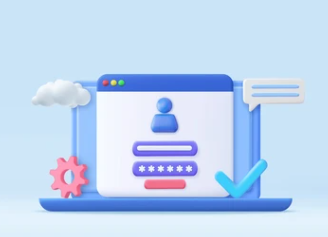In the global gaming industry, game testing and account management are critical steps to ensure smooth operations. With the rapid growth of the gaming sector, the demand for cross-regional game testing, account creation, and global player access has surged. This article delves into the application of residential proxies in game testing and account management, analyzing how they enhance global access efficiency and provide strong support for game companies.

Challenges in Account Management and Testing in the Gaming Industry
- Cross-Regional Account Management: Game companies often open their platforms to global users, but due to legal, policy, or other restrictions, players from different regions may encounter access issues or difficulty registering accounts. For example, players in certain countries may not be able to access global servers or may be required to provide local information during account registration. To address these issues, game companies must simulate user behavior from different regions to ensure that the account system works globally.
- Global Demand for Game Testing: During the development and update of games, companies need extensive testing to ensure the game functions properly across servers worldwide. This includes checking server response times, verifying localization effects, and ensuring that the network conditions in different regions do not negatively impact gameplay.
- Multi-Account Management and Testing: In the testing phase, teams often need to create multiple accounts to simulate various player behaviors and test game features. However, many games limit account creation and logins from the same IP to prevent cheating. Residential proxies can help testing teams bypass these restrictions, allowing them to create and manage multiple game accounts for large-scale testing.
The Role of Residential Proxies in Game Account Management
- Bypassing Regional Restrictions for Global Account Creation: Game developers need to manage accounts globally to ensure players can register and access games regardless of their location. In some cases, countries may impose geographic or policy-based restrictions on account registration. Residential proxies allow developers to simulate user behavior from different countries, ensuring that the game's account system supports global registration.
- Multi-Account Testing and Management: During development and testing, teams need to test the stability and security of account systems, which involves creating and managing a large number of accounts. To prevent cheating, many games restrict the number of accounts that can be created or logged in from a single IP address within a short period. Using residential proxies, testing teams can assign multiple real residential IPs, enabling smooth multi-account creation and management.
- Enhancing Game Account Security: Security is a key concern in managing game accounts on a global scale. Hackers often use automated tools to attempt to create or log into multiple accounts for illegal activities. Game companies can use the IP rotation feature of residential proxies to simulate logins from different countries, helping to detect and prevent potential malicious attacks.
The Role of Residential Proxies in Game Testing
- Cross-Regional Performance Testing: Residential proxies allow testing teams to access game servers from different geographical locations, simulating the experience of players worldwide. For example, teams can use residential proxies to access game servers in Europe, North America, and Asia, gathering network data from various regions. This data helps development teams optimize server settings to improve the gaming experience for global players.
- Localization Testing: To attract a global audience, many games undergo localization, which includes translating content, redesigning interfaces, and adapting cultural elements. During localization testing, teams need to ensure that players in different regions see the correct content that aligns with local cultural norms. With residential proxies, testers can access the game from various regions to verify the accuracy of localized content and ensure that localized versions run smoothly on servers worldwide.
- Regional Event and Promotion Testing: Game companies often launch regional events and promotions targeting players in specific areas. These activities typically rely on players' IP addresses to determine their geographic location, displaying region-specific content. Using residential proxies, testing teams can simulate player access from different regions to ensure that regional events and promotions are correctly displayed and functional.

How Residential Proxies Improve Global Access Efficiency
- Fast Region Switching to Save Testing Time: In game testing and account management, teams often need to switch quickly between different countries and regions. The IP rotation feature of residential proxies allows developers to rapidly switch between IP addresses from different regions, significantly reducing testing time and improving efficiency. Compared to traditional VPNs or data center proxies, residential proxies offer more stable connections and faster switching, effectively enhancing global access efficiency.
- Bypassing IP Bans and Blacklists: During large-scale testing, frequent IP requests may be flagged as abnormal behavior by game servers, resulting in IP bans. Residential proxies provide multiple real IP addresses, helping teams avoid this risk and ensuring continuous and stable testing. Additionally, since residential proxy IPs come from real user networks, they are less likely to be blacklisted, further improving global access efficiency.
How to Choose the Right Residential Proxy Service
When selecting a residential proxy service, game development teams should consider the following key factors:
- Global Coverage: Ensure that the proxy service provider offers IP addresses from multiple countries and regions to meet the needs of cross-regional account management and testing.
- IP Rotation Speed: The IP rotation feature of residential proxies should be flexible enough to allow quick switching between IP addresses during large-scale testing, ensuring an efficient testing process.
- Anonymity and Security: Choose a residential proxy service with high anonymity and security to ensure that data is not leaked or monitored during the testing process.
- Stability and Connection Speed: Testing and account management require stable network connections. A high-quality residential proxy service should guarantee connection speed and stability to avoid affecting the accuracy of test results. A service like Nsocks is recommended for its cost-effectiveness and smooth performance.
Conclusion
In modern game development and operations, residential proxies have become a widely used tool for enhancing the efficiency of game testing and global account management. With residential proxies, game companies can create and manage multiple accounts, conduct global performance testing, and verify localized content, ensuring that the game delivers a consistent and seamless experience to players around the world.





